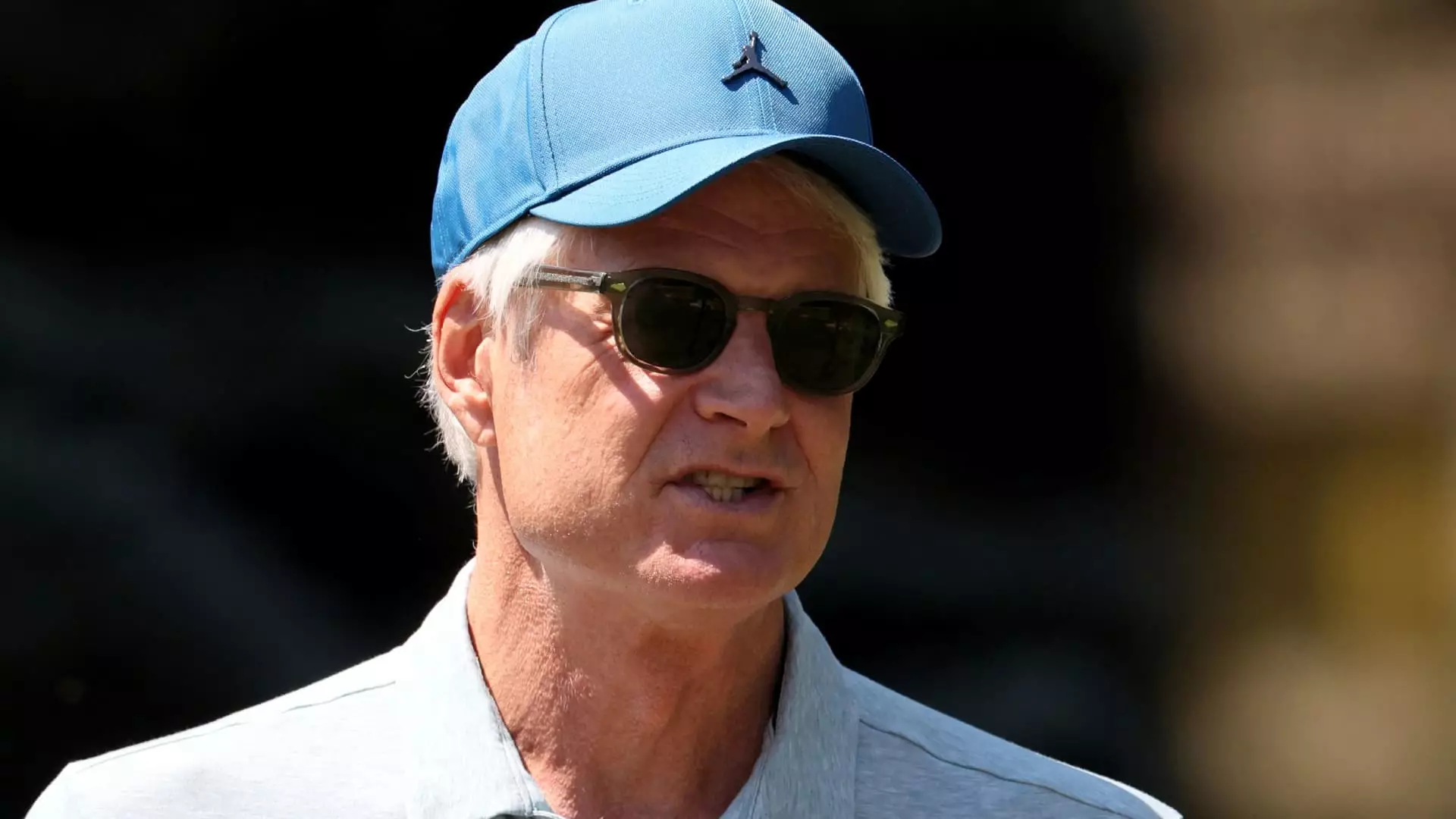In a surprising turn of events, Nike has announced that John Donahoe, the company’s CEO since January 2020, will step down, making way for the return of Elliott Hill, a long-time veteran with extensive experience within the brand. Hill, who recently retired, will take the helm on October 14, 2023, just a day after Donahoe’s departure. With shares of Nike soaring 8% in after-hours trading immediately following this news, it appears investors are cautiously optimistic about Hill’s return amid the company’s recent struggles.
Nike has witnessed a challenging fiscal year, with share prices plummeting over 25%. The company’s decision to pivot towards a direct-to-consumer sales model has drawn criticism, with industry experts arguing that this shift has come at the expense of innovation. Reports from late June indicated a forecasted 10% drop in sales for the current quarter, exacerbated by softening demand in key markets like China and inconsistent consumer trends globally. This grim outlook was significantly worse than the 3.2% decline analysts were predicting, leading to one of Nike’s worst trading days ever.
Donahoe’s tenure, while characterized by significant revenue growth—annual sales surged from $39.1 billion in fiscal 2019 to an anticipated $51.4 billion in fiscal 2024—was also marred by criticisms about the strategic direction. The former CEO, who came from a non-retail background with experience at eBay and Bain & Company, seemed ill-equipped to address the intricacies of the retail landscape, particularly with regards to maintaining the company’s innovative edge.
Elliott Hill’s re-emergence as CEO offers hope for the company’s morale and cultural integrity, aspects that have reportedly been waning under recent leadership. Having started his career at Nike as an intern in the 1980s, Hill’s connection to the brand runs deep. He ascended through the ranks to eventually lead the company’s consumer and marketplace division, shaping commercial and marketing operations for notable lines including Nike and Jordan Brand.
Mark Parker, Nike’s executive chairman, emphasized the strategic thoughtfulness behind this leadership change. He affirmed that Hill’s global expertise and keen understanding of the brand—coupled with a passion for sports—make him the ideal candidate for navigating the company through this transitional phase. Parker’s statement echoes a sentiment of relief that Hill’s familiarity with Nike could be instrumental in repositioning the brand for future growth.
As Nike attempts to realign its core philosophies with market demands, Hill’s challenge will be restoring the level of innovation that once defined the brand. Critics point out that an overaggressive break from wholesale partnerships allowed younger brands, like On Running and Hoka, to gain traction, effectively occupying shelf space once dominated by Nike.
While Donahoe’s focus on e-commerce and digital initiatives initially catered to the shifting retail landscape, the company’s existing strategies drew fire by undervaluing partnerships that have historically fostered brand presence. As Hill steps into his role, he must balance a commitment to direct consumer engagements while also recognizing the significant role that collaboration with traditional retail can play in preserving Nike’s market dominance.
The transition period represents a crucial juncture for Nike. While Hill’s optimism radiates through his remarks, highlighting a desire to rekindle connections with employees and partners, he faces monumental challenges. Analysts, like Jessica Ramirez of Jane Hali & Associates, agree that Hill must work diligently to uplift morale within the organization. Navigating a multifaceted restructuring plan, including layoffs and operational adjustments aimed at cost reductions, will be critical in reinforcing team dynamics.
The echoes of Hill’s leadership will certainly inform the brand’s revival strategies, but a significant reset seems imperative as stakeholders anticipate dynamic changes. In his statement, Hill expressed eagerness to navigate the future alongside Nike’s talented teams, reiterating a commitment to creating innovative products that stand out.
As Nike stands at this crossroads, it remains to be seen whether Elliott Hill’s reign can facilitate a resurgence and returning the brand to its well-earned place at the forefront of the athletic industry. The expectations are high and the journey will be undoubtedly complex, but hope is alive within the company as they embrace a familiar face to guide them through these turbulent times.

